Stories of impact
Laudes Foundation is accelerating the transition to a green, fair and inclusive economy. We focus on industries with an outsized impact on climate change, nature and inequality: built environment, fashion, finance and capital markets and food. Working at a systems-level, our cross-cutting work strengthen labour rights, foster narratives and unlock finance to amplify our impact across all sectors.
Read more
Built Environment
Establishing a global decarbonisation pathway in real estate
Built Environment
Built by Nature: Accelerating the use of bio-based materials
Built Environment
Progressing policy on whole life carbon
Fashion
Scaling regenerative landscape solutions
Fashion
Fashion for Good: scaling pre-competitive innovation
Fashion
Transforming the EU textile system
Finance and Capital Markets
Incorporating climate change into central banks’ decision-making
Finance and Capital Markets
Unlocking finance for a just transition
Labour Rights
“Higher Ground? Fashion’s Climate Breakdown"
Labour Rights
European Corporate Sustainability Due Diligence Directive: helping industry' to be a force for good
Food
Advancing climate-friendly meals
Narratives
Shifting mindsets with stories
Narratives
DEAL: Putting climate and people at the heart of our economy
Catalysing action
Catalysing donor collaboration and alliances
Cross-partner collaboration
First global partner gathering
Strengthening partners
Joining forces to transform supply chain management
Gender Equity and Social Inclusion
Supporting a funder-led safeguarding alliance
Carbon footprint
Reducing our carbon footprint
Built Environment
Establishing a global decarbonisation pathway in real estate

Real estate investors need a clear pathway, aligned with the 1.5°C temperature goal of the Paris Agreement, to reduce operational carbon emissions and ensure their assets continue to be valuable.
Recognising this, in 2020 we partnered with Carbon Risk Real Estate Monitor (CRREM), the first science-based pathway for operational building emissions.
Today, CRREM is being used by investors with a total of over EUR 6 trillion assets under management(AUM) across the globe. According to a Knight Frank survey of 45 UK investors who are managing over GBP 300 billion AUM, 74% of investors use CRREM analysis before purchasing new assets and more than half require CRREM analysis as part of acquisition due diligence.
The success of CRREM highlights the real estate industry's growing need to assess potential climate impacts on portfolio performance.
Built Environment
Built by Nature: Accelerating the use of bio-based materials

In 2021, we founded Built by Nature, a network and grant-making fund that prioritises the built environment working in unison with nature through mainstreaming the use of bio-based materials. Since then, two other major funders have come onboard to help accelerate the use of sustainably sourced timber and other bio-based materials to transform our built environment.
Construction timber can provide an important part of the solution with a ‘triple S’ value: carbon is sequestered as the trees grow; timber can substitute more carbon intensive materials; and it can store carbon for long periods of time. In other words, construction timber can be a highly cost-effective, natural carbon capture and storage technology if used in the right ways.
With networks in the Netherlands, Spain, the UK, and Italy, Built by Nature has removed major market barriers for the next generation of bio-based buildings.
Alongside its partners, it has leveraged a total of EUR 25.8 million to date. Built by Nature’s partners have also played a critical role in the EU starting to formally recognise carbon storage in buildings in its new carbon removal framework, encouraging investment in bio-based material innovation.
In 2023, the Built by Nature Prize was launched to reward scalable, market-ready innovations in bio-based construction materials. Nearly 300 entrants across the globe applied and a prize of EUR 250,000 will be awarded in June 2024.
By the end of 2023, Built by Nature had:
Launched
Invested
Attracted
Built Environment
Progressing policy on whole life carbon
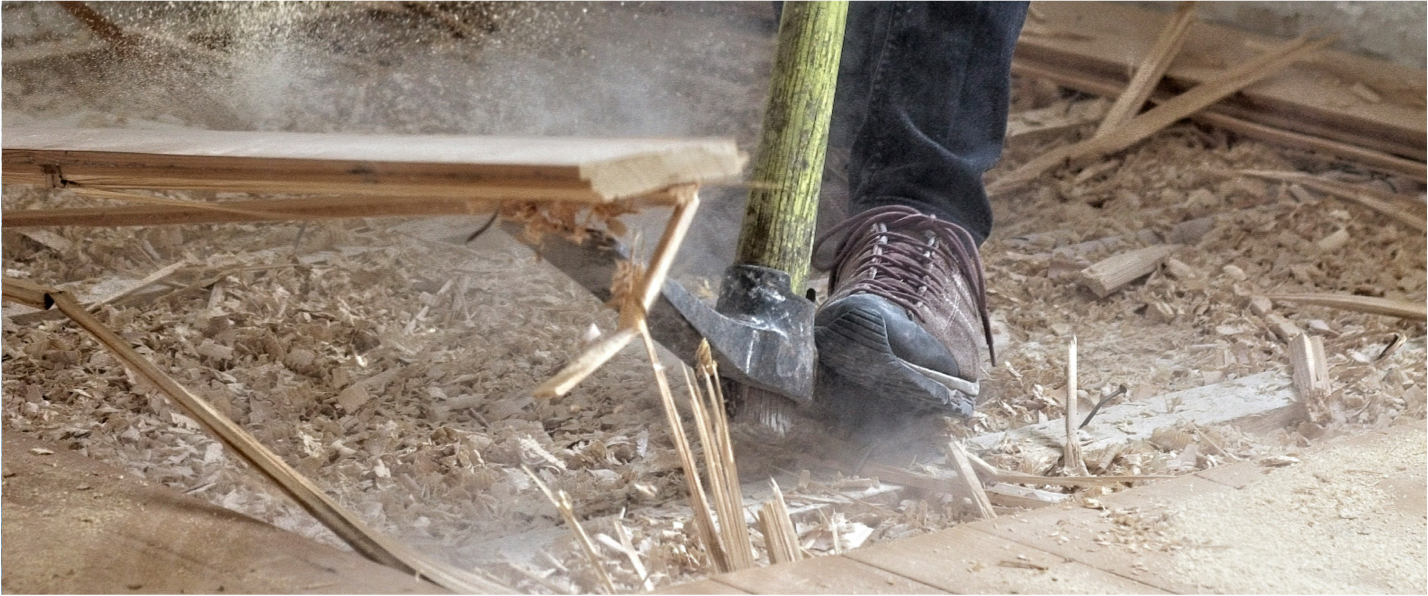
Buildings contribute to nearly 40% of the greenhouse gas emissions caused by human activity, and a quarter of these emissions are generated from building materials and construction. With global building space expected to double by 2060, adopting clear regulatory action to reduce emissions over the lifecycle of buildings is crucial.
The EU’s new Energy Performance of Buildings Directive (EPBD) should be considered a watershed moment. Up until now regulatory efforts to reduce emissions from the built environment had mainly focused on the energy used to operate buildings. The EPBD not only aims to tackle energy use of building stock but also introduces carbon limits for the whole life cycle of buildings – from the raw materials used in construction, right up until the demolition.
Laudes has been working across industry, investors, policymakers, and civil society since 2020 to support this milestone. The key partnerships which have driven this change include the World Green Building Council, whose #BuildingLife project established EU and national whole life carbon roadmaps across 10 countries, city leadership networks such as the Carbon Neutral Cities Alliance, and civil society organisations such as the Buildings Performance Institute Europe and the Institute for Human Rights and Business.
“Adopting clear regulatory action to reduce emissions over the entire lifecycle of buildings will enable the construction and real estate sectors to better manage the risks of transitioning to a low carbon economy and present new opportunities for innovation and competitiveness”
World Green Building Council.
Fashion
Scaling regenerative landscape solutions
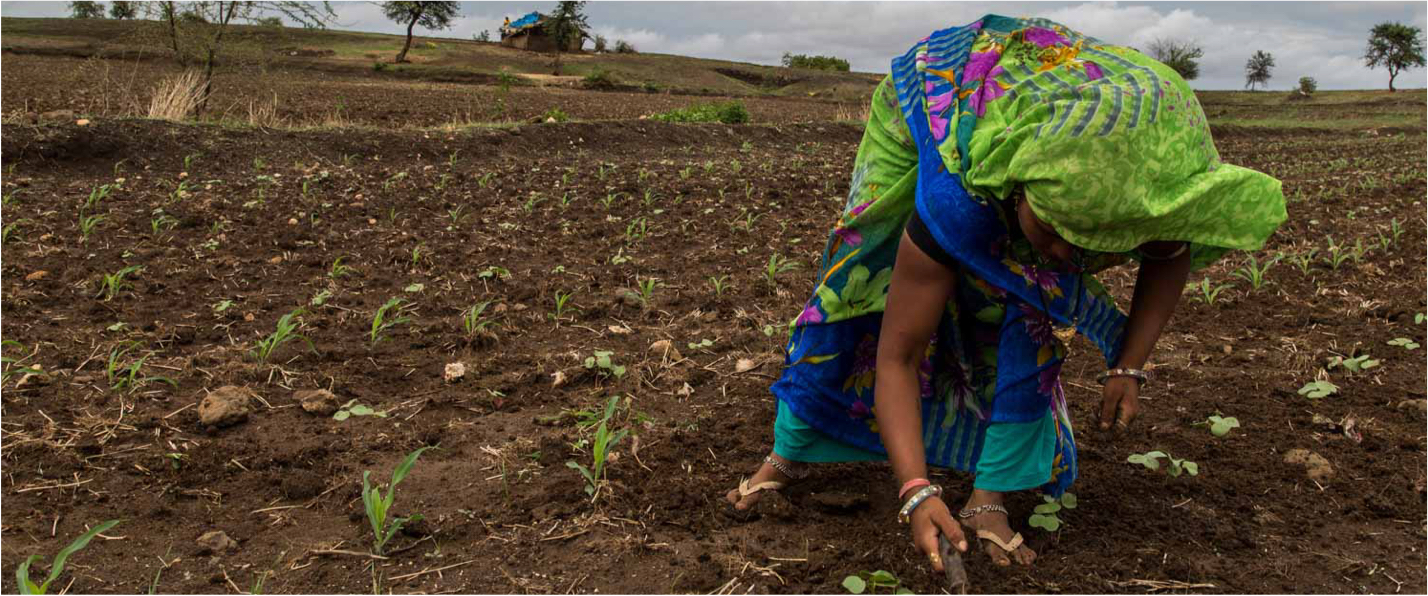
Regenerative Production Landscape Collaborative (RPLC) is a unique multistakeholder initiative transforming business models towards regenerative agriculture and sustainable sourcing.
Founded by Laudes Foundation, IDH - the Sustainable Trade Initiative and WWF India, it is redefining the role of businesses, including fashion companies, in driving positive social and environmental change while including farmers and communities in decision-making.
Over the past six years, our work in this area has enabled:
- RPLCs work in India, Brazil, Tanzania and Pakistan, covering an area of 1 million hectares and supporting over 300,000 farmers.
- Organic Cotton Accelerator (OCA) to become a participant of RPLC in India.
- Kering, H&M and Inditex supporting 70,000 smallholder farmers, converting 91,000 hectares to organic farming and increasing farmer profits by 38% since its inception.
- GIZ in Tanzania, the fifth largest organic cotton producer in the world, supporting more than 15% of cotton farmers in the world.
Despite progress, work is still needed to ensure regenerative landscape practices are financially appealing and can be widely adopted. To support this work, in 2023 we organised a workshop, in partnership with 1000 Landscapes for 1 billion People and Climate-KIC, with 26 peer organisations to exchange lessons on scaling landscape solutions. Participants shared achievements in areas such as soil health, water management and gender equity.
The lessons validated the concerns that while finance is available for such initiatives, it remains fragmented and poorly aligned with investment needs, and capital often doesn’t reach the people on the ground who can drive tangible change. Initial support provided by philanthropy can attract more investment as well as help build collaboratives and strengthen capacity for investor engagement with participating organisations.
Fashion
Fashion for Good: scaling pre-competitive innovation

Laudes Foundation is a founding partner of Fashion for Good (FFG), a global initiative that seeks to enable the widespread adoption of sustainable fashion innovations.
During 2023, FFG assessed its impact since its inception to develop a new five-year strategy. Unveiled early in 2024, the strategy refocuses efforts to scale innovation in fashion.
“We are committed to bolster our Innovation Platform and deepening efforts in brand uptake, supplier integration, financing and impact measurement. We’re renewing our commitment by fostering deeper collaboration among our community of sustainable fashion industry changemakers.”
Katrin Ley, Managing Director, Fashion for Good
In November 2023, FFG launched the Sorting for Circularity India Toolkit, a landmark collection of research providing an in-depth analysis of the Indian textile waste landscape. It digitally maps the country’s pre-consumer textile waste and explores how post-consumer textile waste can be quantified with automated sorting technologies. This ensures best use cases and, ultimately, demonstrates the commercial viability of sorting hubs.
This marks a milestone in the journey towards a fashion industry that works as a force for good. By unpacking the huge potential in India’s textile waste industry, as well as considering the roadblocks and commercial opportunities, this initiative moves beyond rhetoric and translates findings into a roadmap for concrete actions.
+3,000
innovators scouted
173
innovators supported
477
pilots started
412
implementation cases
€1.9bn+
capital committed
Fashion
Transforming the EU textile system

The 2022 EU Strategy for Sustainable and Circular Textiles represented a major milestone in the pursuit of a more sustainable and circular textile industry.
“We need clothes that are designed to be used, mended and loved for a long time, toxic-free, and produced in a fair and sustainable way. The EU Textile Regulation can give the right impulse to transform the market, beyond European borders.”
Valeria Botta, Environmental Coalition on Standards
Three of our partners, Environmental Coalition on Standards, European Environmental Bureau, and Fair-Trade Advocacy Office, are part of the Shadow Coalition on Textiles. The coalition’s work contributed to an ambitious Ecodesign regulation in 2023, which aims to reduce the carbon footprint of products entering the EU market, minimise energy and chemical usage, promote sustainable materials, enhance durability, and facilitate repair or recycling.
The coalition has advocated for the inclusion of social aspects in the regulation's revision, which the Commission has committed to assessing. Additionally, with mounting public pressure, the ban on the destruction of unsold textile goods was expedited, reflecting a more proactive stance towards waste reduction.
Finance and Capital Markets
Incorporating climate change into central banks’ decision-making

Central banks have the mandate of maintaining price stability and confidence in the financial system. This broader economic view has not always allowed them to address the environmental and social issues.
Laudes Foundation’s partners – including Council on Economic Policies (CEP), New Economics Foundation, Positive Money Europe, Reclaim Finance, World Wildlife Fund and Sustainable Finance Lab – have carried out work that has been instrumental in removing the barriers to central banks acknowledging and acting on climate risks.
CEP was amongst the first to raise climate risks with central banks and have continued to build this case since 2014. Through bilateral meetings, publications and events they engage with central bank decisionmakers and technical staff. CEP’s work in the past year on macroprudential policy is a case in point: co-authoring a policy brief on the topic with the Head of the Systemic Risk and Financial Institutions Division at the European Central Bank (ECB) and engaging central banks around the world on the role of macroprudential policy in addressing climate risks.
In 2023, this sustained effort resulted in the ECB, which has increasingly acknowledged that climate change is a significant threat to the economy and needs to be included in its mandate, publicly reiterating that all banks under its supervision must address climate and environmental risks by the end of 2024.
Banks provide 80% of the external finance used for investment activities in Europe1, and influence capital flows through their underwriting of financial securities, so this shift in focus is an important contributor of our strategy to drive a just transition.
1 European Investment Bank Investment Survey, 2019
Finance and Capital Markets
Unlocking finance for a just transition

The green finance agenda has accelerated in recent years due to European regulatory developments, pushing businesses to publish credible transition plans.
Our partners in the European Responsible Investment Network (ERIN), including Third Generation Environmentalism, Share Action, World Wildlife Fund and Finance Watch, have played a central role in these developments, advocating for a harmonised regulatory financial framework that requires mandatory, reliable, comparable and enforceable corporate climate targets and transition plans across the EU.
In October 2023 ERIN convened civil society organisations to release a manifesto entitled “Financing the Future We Want: our agenda for a sustainable and inclusive EU financial sector”, with key policy recommendations for a European sustainable finance agenda. They socialised this work with several different teams in the European Commission, as well as the cabinet of President von der Leyen.
Meanwhile, Finance Watch continues to work at all levels necessary to influence banking and insurance regulation in the EU – providing expert evidence and using its membership of stakeholder groups to advance regulation. In 2023 alone Finance Watch contributed to over 200 related events and earned nearly 250 pieces of press coverage ultimately leading to the inclusion of extensive provisions on the management, reporting, disclosure, governance and supervisors review of the ESG risks of EU banks.
The efforts of our partners have resulted in the European Commission publishing transition finance recommendations within its final sustainable finance package in June 2023. This marked a significant advancement in the EU and global transition finance frameworks and paves the way for continued sustainable finance work in the 2024-29 European Parliament and Commission. The same year, European policymakers (integrated substantial sustainability and climate risk provisions in the) the Capital Requirements Regulation and Directive thanks to the work of our partner Finance Watch. Importantly, such regulation as well as the Corporate Sustainability Reporting Directive (CSRD) will require transition plans with credible targets and monitoring of their achievements.
These changes are an important recognition of the need to address climate risk in banking regulation and will directly impact the way that capital is allocated, boosting the case for a just transition.
Labour Rights
'Higher Ground? Fashion’s Climate Breakdown'
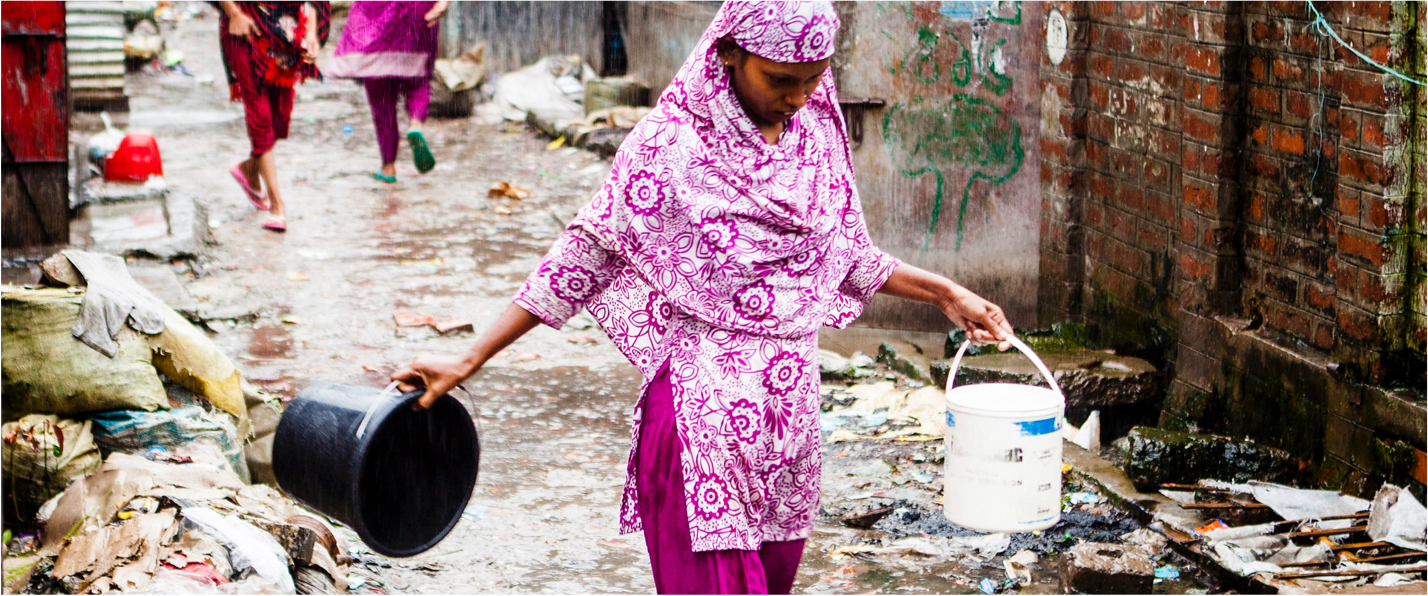
Unprecedented weather amplified by climate change is pushing humanity and ecosystems beyond their limits. In 2023, we supported Cornell University Global Labor Institute and Schroders to produce 'Higher Ground? Fashion’s Climate Breakdown'.
Referenced in the Financial Times and CNN Business among other leading titles, the report is a pivotal publication that details the major climate hazards expected, centres the risk faced by workers and highlights how susceptible the fashion industry is to climate change.
Extreme heat and flooding could erase up to 1 million jobs and USD 65 billion in apparel export earnings from four Asian countries by 2030. And for every degree above 25°C , productivity in apparel factories falls by about 1.5%, which results in significant economic costs and poses a material risk for companies and investors.
“Brands need to get a handle on what's happening to heat levels and flood vulnerability among their suppliers and begin to treat climate impacts for workers as health hazards.”
Jason Judd, Executive Director of the Global Labor Institute
This report is an important example of philanthropy’s ability to bring together different stakeholders and provide the data needed to initiate action by both industry and investors as well as kickstart vital discourse, bringing the conversation to the public – achieving an impressive 270 pieces of editorial coverage with a reach of 755+ million readers, and opening channels for discussion with governments. The latter including audiences with the European Parliament in Brussels, the US International Trade Commission in Washington DC and the ILO in addition to conversations with several regulators, unions, campaigners and brands.
Labour Rights
European Corporate Sustainability Due Diligence Directive

The EU holds significant influence over the practices of companies operating within the region, and over their global supply chains and the people and natural environment on which these companies depend. Momentum has been building for years towards a common approach and standard to address corporate impacts on human rights and the environment.
Adopting and enforcing regulations for companies within Europe can provide legal clarity for businesses and address dynamics between companies and workers in their supply chains.
The Corporate Sustainability Due Diligence Directive (CSDDD) is a pending EU-wide directive that requires companies to undertake due diligence to identify, prevent and mitigate harm to human rights and the environment. It also sets obligations for companies to adopt and implement a climate transition plan. The landmark directive brings the existing international standard of the UN Guiding Principles for Business and Human Rights into law. It sets new norms for businesses to respect rights and prevent harm through their operations. It is key to achieving a just transition by ensuring companies identify, prioritise and minimise human rights and environmental impacts connected with their operations, including climate transition activities, and supply chains.
Laudes Foundation has been supporting an ecosystem of partners accelerating advocacy to support robust regulations such as the CSDDD, to continue to raise the bar so all organisations across all industries are motivated to do more and foster a culture of “do no harm”.
European Coalition for Corporate Justice (ECCJ), Anti-Slavery International (ASI), Shift, Business & Human Rights Resource Centre (BHRRC), Frank Bold and others, have been supported to towards this common standard. Their activities have included coalition building, advising businesses, conducting research, generating evidence and undertaking policy advocacy — which can also serve to address the challenges of competing regulatory approaches on these issues across Europe, such as the French and German due diligence laws, UK Modern Slavery Act, Dutch Child Labour law and others. Together they have worked closely with affected people such as workers and communities, civil society, trade unions, businesses, financial actors and policymakers.
By coordinating and building support from businesses and investors, civil society organisations are able to uplift the priorities of historically overlooked stakeholders, particularly workers, exercising greater influence than they would, working in isolation.
"Just over a decade on from the adoption of the international due diligence standards - the UNGPs and OECD Guidelines - we are seeing game-changing regional legislation. The CSDDD’s grounding in the international standards will make sure it’s meaningful for the people most affected by businesses and also manageable for the companies implementing the Directive.
It gives us the potential to implement what we have learnt about what works - and to avoid what doesn’t - in carrying out sustainability due diligence.”
Rachel Davis, Vice President and Co-Founder of Shift Project
Food
Advancing climate-friendly meals
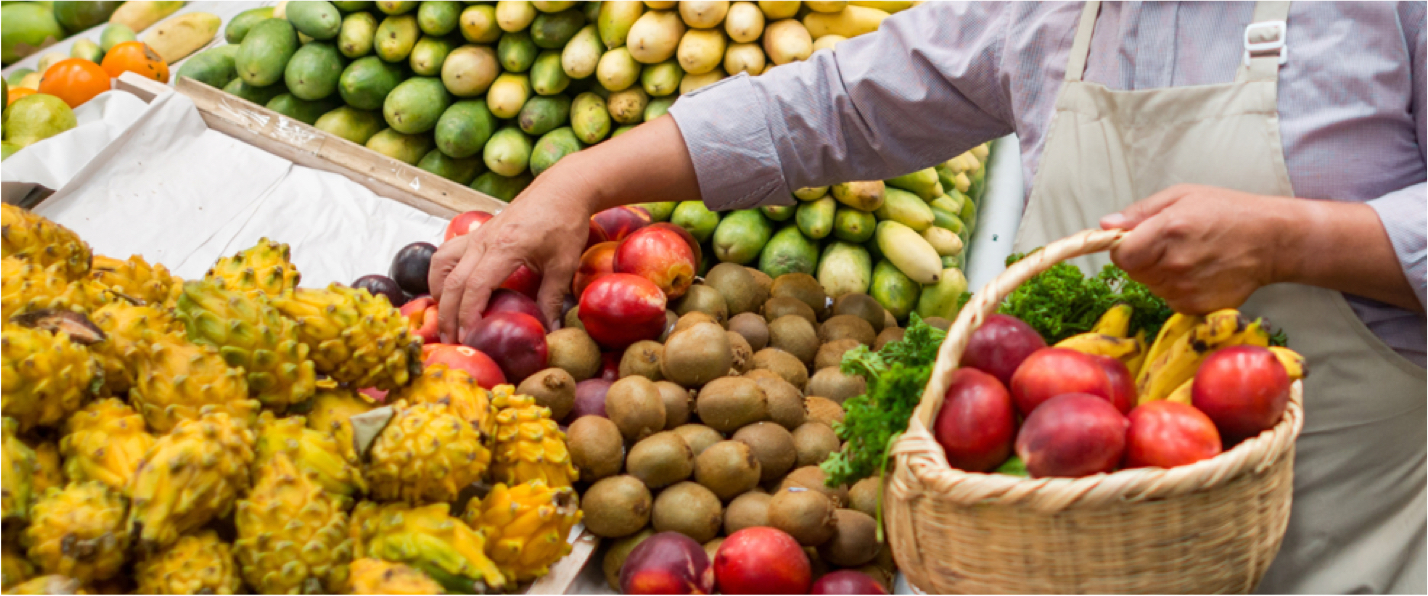
The food system can be a powerful driver of a green, fair and inclusive transition, as it accounts for a third of greenhouse gas (GHG) emissions and employs over 1.2 billion people. During 2023, we explored the deep structural issues in the food industry and the role that Laudes Foundation could play to accelerate this change. We developed this learning journey by building 12 partnerships totalling over EUR 1.3 million in grants that enabled knowledge building and sharing on food systems in cities, food loss, and waste and food procurement.
In January 2024, we supported the first European Coolfood Pledge Summit with the aim of learning how cities and businesses can collaborate to advance more climate-friendly meals. The Coolfood Pledge supports cities, businesses and institutions to reduce the GHG emissions associated with the food they serve by 25% by 2030, in line with the Paris Climate Agreement.
“Changing our diet is a simple step we can all take to reduce our carbon footprint. Through Coolfood we show that shifting demand towards low carbon, plant-based food is not only good for the climate, but also healthier, delicious, and good for business too.”
Anne Bordier, Director of Sustainable Diets at WRI
Major city leaders, business representatives from food companies, and chefs from top restaurants came together to share best practices on advancing more plant-based diets while making them accessible and affordable. Clear themes of collaboration emerged during the summit, including:
- The need for ongoing dialogue: cities and businesses have the power to change social norms.
- The importance of public procurement: cities must innovate their procurement practices and focus on more climate-friendly meals.
- The power of reshaping narratives: through advertising and other tools using behavioural science, cities and businesses can move consumer choice toward more climate-friendly options.
Over 2024, we’ll continue to build partnerships to understand the powerful role cities can play in advancing the food industry transition and Laudes’ philanthropic capital can help to catalyse it.
Narratives
Stories that shift mindsets

Journalism has the power to unlock and amplify narratives towards a green, fair and inclusive economy and inspire industry and government action. In partnership with Thomson Reuters Foundation (TRF), we are supporting media outreach, training and initiatives to amplify the need for a just transition.
In 2023, TRF’s work in Bangladesh focused on increasing the volume and quality of climate change stories. Aiming to create a balanced view and interviewing key stakeholders, including policymakers and business leaders of international fashion brands, they served as a learning platform for media organisations, as well as a source of inspiration for other industry players and organisations. TRF positioned themselves as a crucial intermediary of dialogue, hosting and attending events and tapping into digital media to reach new audiences.
Their work covering the creation of low-carbon economic zones in Bangladesh prompted further local media investigations and fostered a more informed public discourse, resulting in a follow-up report in the Daily Star and two thought-leading journalistic pieces in reputable outlets. The stories had local reach and generated interest in international media across Asia, amplifying the topic with eight outlets republishing the story.
TRF’s report on job protection and adaptation in the garment sector in the face of climate change was one of the most widely shared stories, with industry leaders and organisations supporting and resharing. Our partner, Cornell Labor Institute, referenced it in the Laudes funded research report "Higher Ground? Fashion's Climate Breakdown".
Narratives
DEAL: Climate and people at the heart of our economy

Our partner Doughnut Economics Action Lab’s (DEAL) aim is to help create economies that are regenerative and distributive by design. In under four years DEAL has engaged over 75 governments, more than 500 companies and in excess of 80 news outlets. It has been featured on primetime TV and cited by the International Monetary Fund, World Bank and European Commission.
At the heart of this success lies a doughnut visual in which planetary boundaries, human wellbeing and economics are brought together. The visual and DEAL’s frameworks and tools, that can be used by businesses, governments, schools and cities, serves as an inspiration and is motivating people around the world to act on solutions that can bring society within a space that is ecologically safe and socially just.
The municipality Tomelilla in Sweden, for example, has worked with doughnut economics for the past two years and was granted funds to develop a new school, exploring everything from construction methods and local sourcing of school meals to the curriculum and governance structures.
Much of the high impact work of doughnut economics takes place behind the scenes, at the heart of governmental and business processes. It facilitates new cross-silo conversations, budgeting approaches, and monitoring and decision-making tools, which will produce longer-term results for places and businesses. And all this change is supported by a powerful narrative that is capturing attention around the world.
Catalyzing action
Catalysing donor collaboration and alliances

To effectively accelerate investment towards a green, fair and inclusive transition, we bring together funders, experts and practitioners to spark dialogue and develop a common vision for change. Over 2023, two initiatives highlighted the power of bringing people together to create shared action:
- Establishing a Just Transitions Donor Alliance
We helped develop a network of over 20 donors, representing over USD 2 billion in annual grant giving across the human rights, development, nature and climate change sectors to collaborate in the Just Transitions Donor Alliance (JTDA). The JTDA provides an important space where Laudes Foundation and like-minded donors can learn, connect and act together in support of just transitions worldwide.
Another outcome of philanthropic collaboration is the Just Transitions Initiatives Mapping developed in partnership with Wallace Global Fund, Ford Foundation and Climate Horizons. The report maps the global efforts of organisations working to deliver just transitions across sectors and geographies. Access the report here. - Connecting doers and donors in the built environment
Alongside IKEA Foundation, we helped create Assemble, a network of leading donors and partners working to transition the built environment. The initiative involved key players in the industry, including our partners and fellow philanthropies working across the climate and social fields of the built environment. The network collaborated on a playbook for transitioning buildings by 2030 and gathering the support for the investment needed to do so.
Assemble has defined a set of workstreams, such as narrative development and measuring accountability, and will help create the roadmap for major built environment collaborative work in 2024, including the first ever Buildings and Climate Global Forum hosted in Paris by President Macron’s government.
Cross-partner collaboration
First global partner gathering
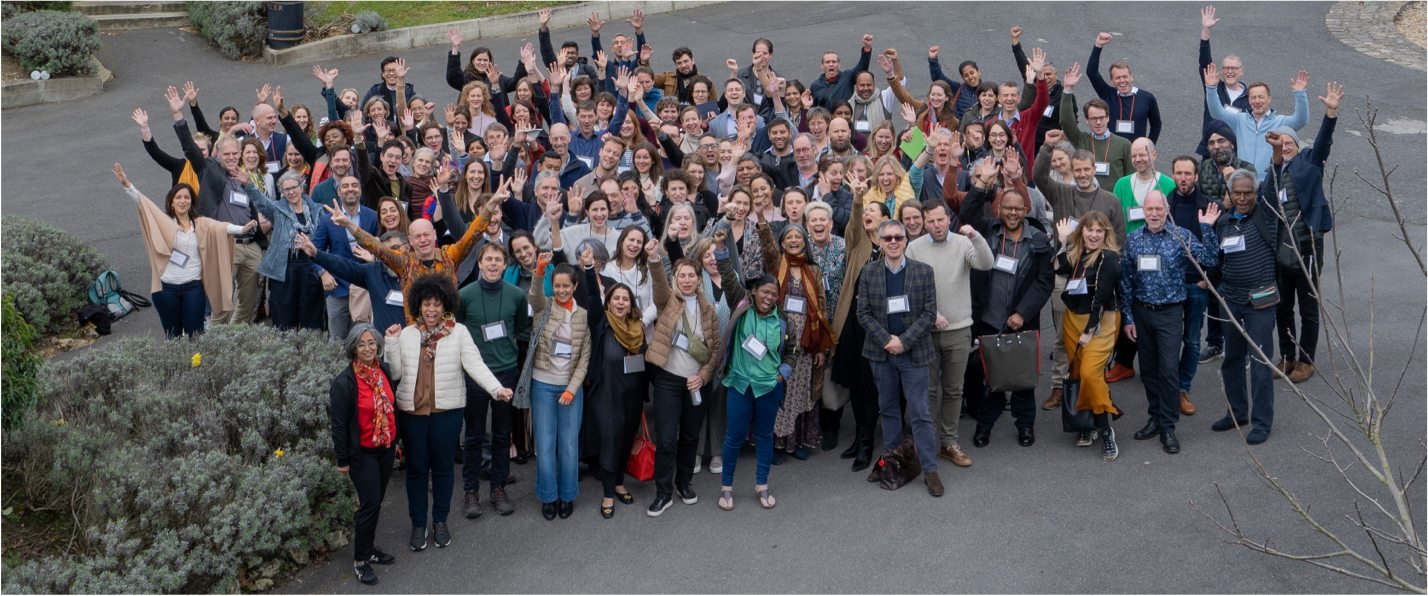
To solve systemic issues across the industries and areas Laudes Foundation works, we are committed to creating the time and space to truly understand our partners and give them the chance to connect and learn from one another.
At the first Laudes Partner Gathering, held in March 2023, over 100 of our partners and more than 20 of our senior team members and governors came together to discuss how future global issues might shape our work and the connections we require to reinforce our efforts. The gathering helped our partners spark new ideas, share learnings and explore collaboration opportunities.
As a result, over 20 of our partners have started to work together or are having discussions on how to better collaborate going forward. This includes Mapped in Bangladesh, Open Supply Hub and Wikirate, who are working together to develop an open data ecosystem. Explore how they are advancing this work.
Learning Fund
Joining forces to transform supply chain management

To foster collaboration and enable partners to be intentional about knowledge generation and sharing, Laudes Foundation created the Learning Fund. In 2023, it supported 17 partners to lead learning activities pilot new initiatives, convene stakeholders and build collaboration.
After meeting during our Partner Gathering in March 2023, three of our partners, Mapped in Bangladesh, Open Supply Hub and Wikirate, received a grant from Laudes to explore how an open data ecosystem can be a transformative approach to supply chain management.
To address the lack of data that is available and usable for companies and civil society, including standardised data formats across different laws, our partners are now working together to develop an Open Standard for Supply Chain Data Exchange. Their vision is an expansive, real-time network where data can freely move between various systems, serving as a foundational element for legislative compliance and broader collaborative efforts.
The collaboration emerged at a critical time when regional and local legislations and regulatory frameworks are being discussed, demanding human rights and environmental due diligence practices across supply chains.
Their work during the grant period included:
Evaluating existing data and standards to help avoid duplication.
Identifying key user needs and potential impacts of data gathered.
Fostering mutual understanding and support among supply chain stakeholders.
Monitoring new compliance regulations to futureproof work considering forthcoming legal requirements.
Consulting with over 10 civil society organisations, revealing that a collaborative approach is needed.
As our partners move forward, they plan to continue expanding their community, enhancing their platforms and refining their approach to data management and exchange.
Gender Equity and Social Inclusion
Funder-led safeguarding alliance

We cannot address deepening inequality across industry if we do not embed a comprehensive gender equality and social inclusion (GESI) lens to our work with partners. Part of our efforts to strengthen GESI across our work is creating safeguarding frameworks as well as technical support for partners to implement them.
A study by the Funder Safeguarding Collaborative (FSC) found that in some geographies, safeguarding is still a relatively new concept and there are very few service providers with the necessary experience to follow up on cases of harm, abuse and exploitation.
With our support, FSC launched a 12-month learning programme to increase the availability of high-quality safeguarding expertise in five countries in Asia. In total, 40 participants keen to deepen their knowledge on safeguarding were selected to be part of three separate Communities of Practice (CoPs). The selection process commenced through an initial outreach to professional networks in the region and then an interview process. FSC also developed a quality assurance framework to ensure participants had acquired the relevant knowledge and skills to be able to support organisations to create or strengthen their safeguarding frameworks.
The results were promising:
- 35 (88%) participants completed FSC’s full curriculum
- 27 (77%) demonstrated the required level of knowledge and skills and can be promoted to funders and NGOs requiring safeguarding expertise.
The second phase of the programme commenced in January 2024 to deepen CoP participants’ understanding through in-depth discussions and practical casework as well as strengthen their approach to support organisations on safeguarding.
Gender Equity and Social Inclusion
Reducing our carbon footprint

Laudes Foundation is committed to measuring, reporting, and reducing all carbon emissions that result from our global operations. In 2023, our gross overall emissions were 465 tCO2e. The calculation includes emissions from both Laudes Foundation and the global innovation platform Fashion for Good founded by Laudes.
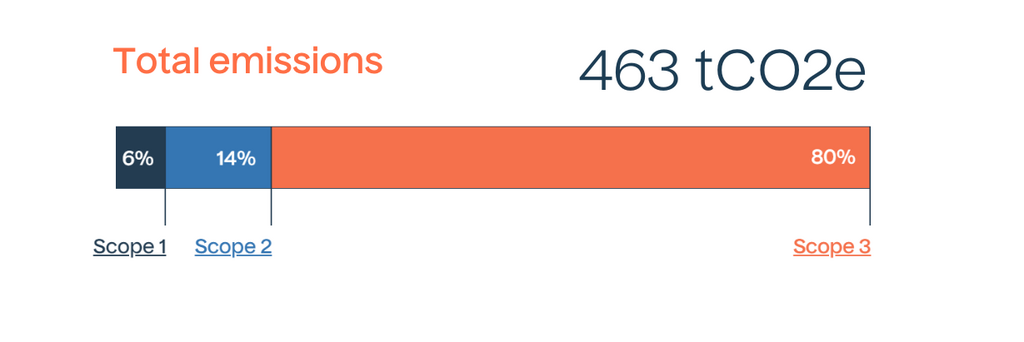
Laudes Foundation' emissions
tCO2e/year
%
Business travel
244
71%
Premises
62.8
18%
Homeworkers
17.8
5%
Commuting
16.6
5%
Company owned cars
2.69
1%
We are continuously working to minimise our emissions. Our focus is to avoid and reduce emissions. In this lines, our actions in 2023 included the commitment with prioritising train travel for all trips of less than six hours and closing offices during holidays to reduce energy consumption.

In addition to our efforts to further avoid and reduce, we also offset carbon emissions. Over the past three years, we have been purchasing and retiring carbon credits from the trade union Self Employed Women's Association (SEWA) to support their solar irrigation initiative with the Agariyas, a community of salt farmers in the state of Gujarat, India.
The initiative enables farmers to install solar photovoltaic (PV) systems to power the farm’s water pumps. The initiative not only removes an average of 4,300 tCO2e per year, but also improves farmers’ livelihoods by cutting their expenses and empowering women.
Strengthening partners
Partner collaboration

To foster collaboration and enable partners to be intentional about knowledge generation and sharing, Laudes Foundation created the Learning Fund. In 2023, it supported 17 partners to lead learning activities pilot new initiatives, convene stakeholders and build collaboration.
Additionally, 33 partners received financial and bespoke support to address wellbeing challenges, and a further two received funds to deal with emergency security threats.
One of these initiatives helped our partners Finance Innovation Lab and Positive Money, together with Transforming Finance Network, to bring together 68 of the UK’s leading civil society thinkers to gain a deeper understanding of the issues in the sector and collectively assess the potential for any future campaigns to drive change.

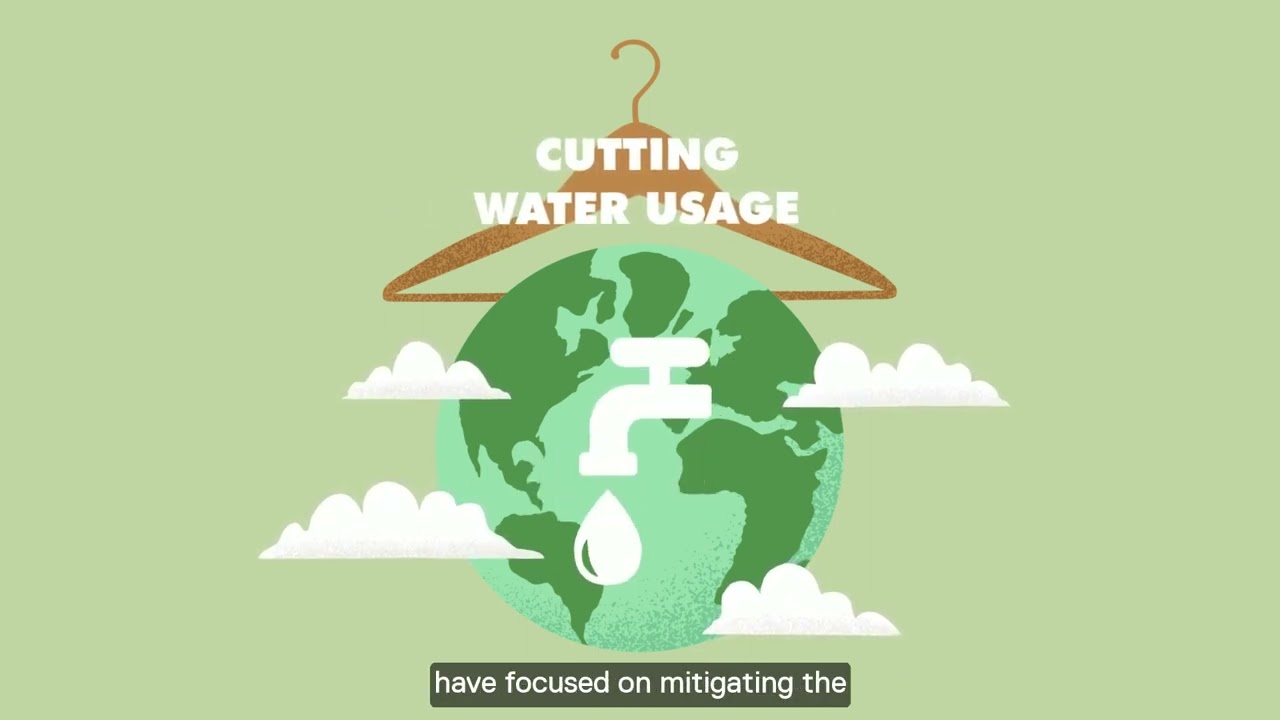
Share